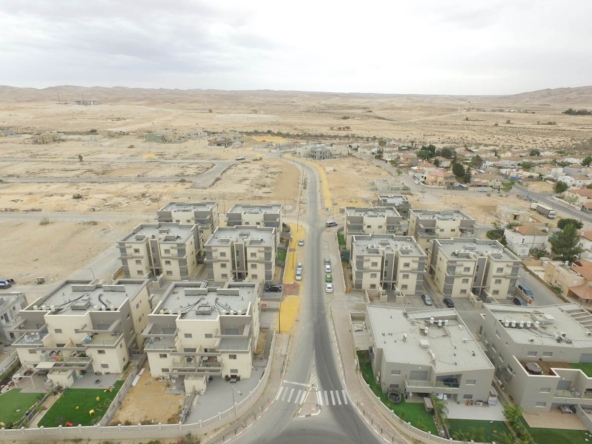The Tel Aviv District Court has annulled a building permit for a construction project in Bnei Brak by the Zohar Li group, due to serious defects that occurred in the process of granting the building permit that was established.
The decision in which the district court revoked the building permit in the municipality of Bnei Brak raised a number of fundamental issues regarding the authorization process in general, and not just for the said building. Here are the three rules that revolutionize everything concerning the issuance of building permits:
1) The right to objections from residents (of the same neighborhood).
Judge Agmon Gonen described this famous right to objection:
Firstly, regarding the notice of a request for rectification, when a notice of a request for rectification is posted in the vicinity of the construction site, an affidavit should be published not only on the date of the announcement but also in local newspapers. This grants a set period for objections. He also stated that when notices of rectification should be sent to well-known owners of adjacent properties, the intention is not to address the adjacent property, but rather to address the rights holders in the adjacent property registered in the same zoning registry.
2) It is necessary to explain the approval and what it entails:
It was determined that the local committee, when approving concessions, should discuss and explain the need for approval. Only the local committee has the right to determine whether the urban relief can be modified or not, while still adhering to the rules for safeguarding the landscape and relief. Appeals are not an acquired right for the applicant, and it is up to the Commission to explain why it believes there is room to grant relief.
The plans determine the relative rights, and the process of granting the permit is the procedure to realize them. In the case of compensation, permit applicants will be granted privileges. A deviation from the balance determined in the plan, in favor of those requesting permits, requires reasoning.
3) Presentation of planning material to members of a local committee
Judge Agmon Gonen further ruled that in a case where the local committee does not include professionals in the field of planning and construction, members of the Committee should be presented with, beyond the formal material, maps, plans, and drawings that are the premises of the programs so that they can conduct an informed discussion of the proposed applications at hand.
The planning office states:
"I want to emphasize, within the framework of planning and construction committees that include design professionals (such as district councils) and other elected officials who understand the city, public members, professionals, such as local advisors. I believe that when the court has adopted a decision of judicial review, it is a fact that this distinction must be taken into account... I refer to the distinction between the ability of local committee members to analyze planning documents such as maps and plans that appear in the sketches....
It follows that when a local committee must make a decision, as in our case, on planning issues, maps, and plans, and its members are not professionals in the field of planning and engineering, it must ensure that the committee is or that it uses external opinions in order to analyze the program thoroughly.
It is not enough to place raw materials, such as maps and drawings, in front of the committee members. This should be reflected in the protocol.
Israeli construction is just getting started, only 60 years in, the planning systems are not yet fully refined, it goes without saying that local or regional committees do their utmost to improve procedures and learn day by day to anticipate new problems that arise as school cases.
Israel has beautiful and long years ahead of it for construction and modification of its relief.
Subscribe to our newsletter to receive the maximum news related to the Israeli land market.
Ps: The state is in the process of establishing a revolutionary system regarding the granting of permits that would allow engineers and architects to submit plans and programs to committees without intermediaries. Directly via the internet, responses would be almost instantaneous thanks to advanced artificial intelligence systems that cannot possibly err regarding a case that has presented itself like that of Bnei Brak.
Each landowner (land) will then be able to submit their request online and repeat the operation as many times as they wish without spending exorbitant amounts.
To receive advice regarding land acquisition in Israel: [fusion_button link="https://fr.isra.land/get-quote/" title="" target="_self" link_attributes="" alignment="" modal="" hide_on_mobile="small-visibility,medium-visibility,large-visibility" class="" id="" color="default" button_gradient_top_color="" button_gradient_bottom_color="" button_gradient_top_color_hover="" button_gradient_bottom_color_hover="" accent_color="" accent_hover_color="" type="" bevel_color="" border_width="" size="" stretch="default" shape="" icon="" icon_position="left" icon_divider="no" animation_type="" animation_direction="left" animation_speed="0.3" animation_offset=""]Click - here [/fusion_button]



